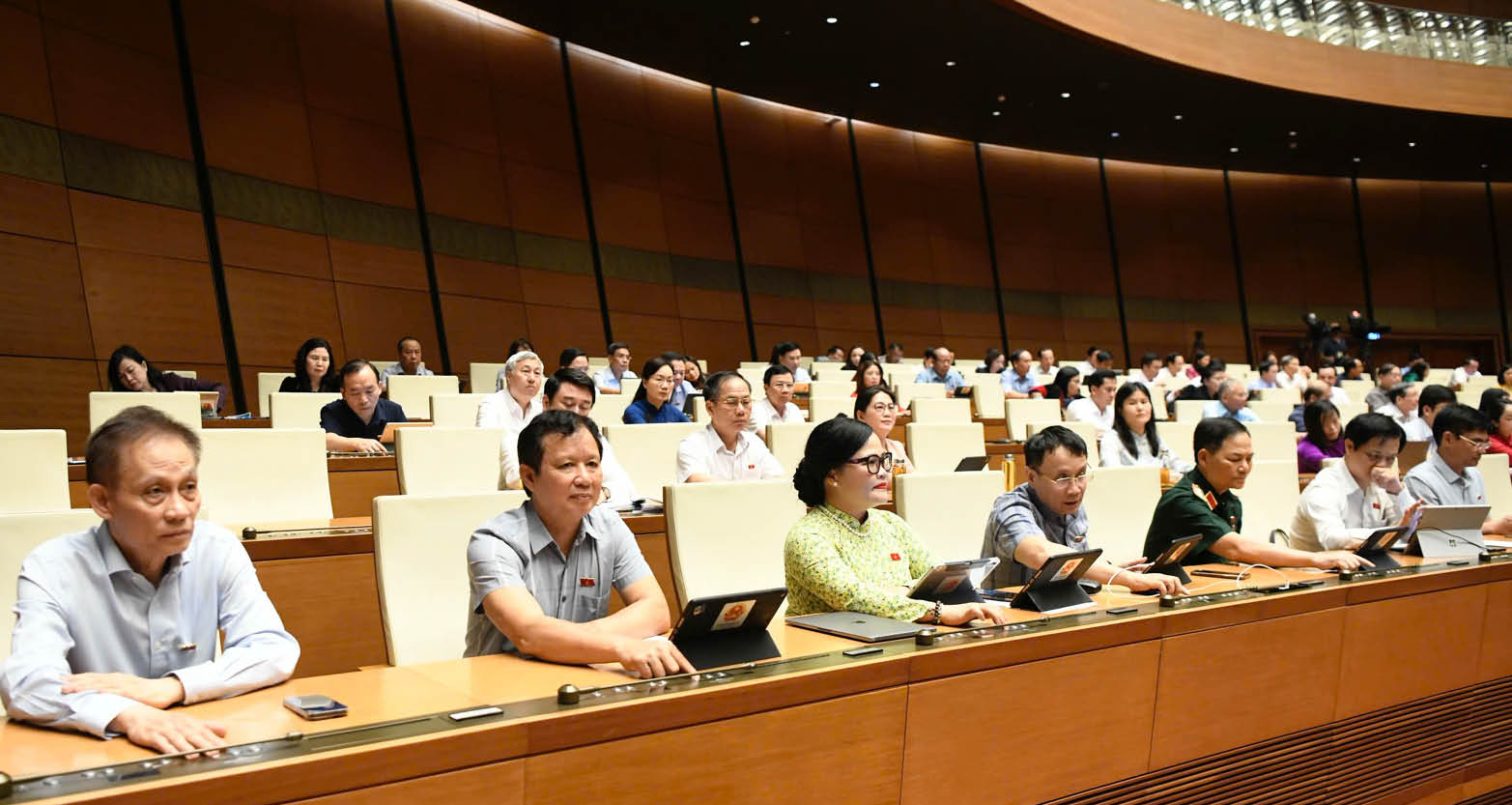 |
| The National Assembly Delegation of Hue City participated in voting to pass the draft laws at the 9th Session of the 15th National Assembly. Photo: Provided by the National Assembly Delegation |
Catch the trend
Parliament has always been considered the heart of democracy. There, the voice of the people is heard, the will of voters is translated into policy, and important decisions about the future of the country are made.
It is worth noting that technology and artificial intelligence (AI) are no longer standing on the sidelines, but are gradually becoming “parliamentary assistants”. AI can analyze legal conflicts, suggest speech content, and synthesize data for supervision. If in the past, delegates had to manage mountains of documents themselves, now there can be a sharp support tool that saves time while still increasing accuracy.
It is no coincidence that Plan No. 39-KH/DUQH of the National Assembly Party Committee sets a very specific target: By the end of 2025, at least 40% of National Assembly deputies and officials will have digital skills certificates; by 2026, this figure will be 60%; showing a truth: Digital transformation is no longer an option, but a mandatory criterion in evaluating officials. A modern parliament requires deputies who know how to use technology as an indispensable part of their activities.
The movement “Digital Education for All - Digital National Assembly” was born with a profound symbolic meaning. Inspired by the “Digital Education for All” movement in 1945 - when the whole nation united to eradicate illiteracy, now “Digital Education for All” is to eradicate technological illiteracy. The message is very clear: In order not to be left behind, delegates and officials must become digital citizens, have digital skills, and from there spread the spirit of learning technology to the whole society.
The way of communication has also changed. At the recent Symposium “Digital Literacy - Digital Parliament: Framework of Digital Knowledge and Skills for the Modern Parliament”, the highlight was not in the thick pages of reports, but in a series of thematic videos created with AI. In just a few dozen minutes, delegates could both “introduce” themselves to digital skills, have a simulated dialogue on how to apply them, and witness AI transform into a “parliamentary assistant”. That is an implicit message: Technology is no longer an external illustration, but is directly involved in the way of learning, working and political thinking.
Speaking at the conference, General Secretary To Lam emphasized that Digital Literacy must become “a revolutionary, all-people, comprehensive, encompassing, and far-reaching movement”, so that each cadre and party member can become a model digital citizen. Here, we clearly see a highlight: Digital Parliament is not just a technique, but a culture; not just a tool, but a spirit of innovation from the roots.
That spirit did not stop at the National Assembly, but spread to each locality. At the Hue City bridge, many National Assembly delegates, the Standing Committee of the People's Council, leaders of the city People's Council committees and even communes and wards participated in the study. That image shows that the digital parliament is no longer far away, but has entered every level of government, every locality, and every person.
Notably, Hue has taken a concrete step by bringing AI right into a People's Council session. At the 10th session of the 8th Hue City People's Council, for the first time, AI was used to automatically present the review report of the Economic - Budget Committee. Each delegate was equipped with a tablet to instantly look up legal bases. This is not just a technical experiment, but a pioneering step: Realizing the goal of "digital transformation of the parliament" with concrete actions, right in a heritage city like Hue.
Transparency from digital data
If delegates must become “Smart MPs”, then citizens also need to become “digital voters”. A digital parliament is only meaningful when voters no longer passively listen, but proactively send opinions online, give feedback via digital platforms, and track each delegate’s vote on the electronic information portal.
In Hue, the city's National Assembly Delegation has repeatedly organized online meetings with voters, opening the doors of the parliament to remote and disadvantaged areas, so that no voice is left behind.
The Hue government is also leveraging digital transformation as a tool to increase transparency. Decisions on public investment, planning, and urban management are made public on electronic platforms, creating conditions for both People’s Council delegates and voters to supervise from the beginning. This is a combination of institutional reform and technology, creating a double step forward in urban governance.
But the digital parliament is not a path paved with roses. Not all delegates are ready to step into the new technological environment, nor is the digital infrastructure in all localities synchronized. The risk of formality - "digitalization on paper" is always present if there is no supervision. And if the data is not transparent and inaccurate, all digital applications will be just a fragile shell.
Therefore, as General Secretary To Lam noted at the Symposium “Digital Literacy for the People - Digital Parliament: Framework of Digital Knowledge and Skills for the Modern Parliament”, digital transformation is not just about installing software or distributing equipment. It must be a change in thinking, a new working culture. Each official must consider learning digital skills as a daily responsibility, not a temporary movement. Only then will the digital parliament be substantial, sustainable, and become a tool for the National Assembly and authorities at all levels to serve the people more effectively.
Source: https://huengaynay.vn/chinh-tri-xa-hoi/nghi-truong-trong-ky-nguyen-so-158294.html










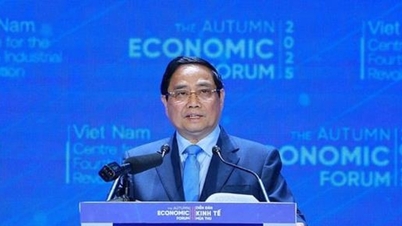

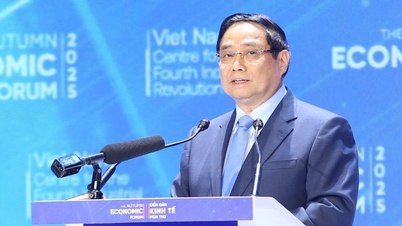

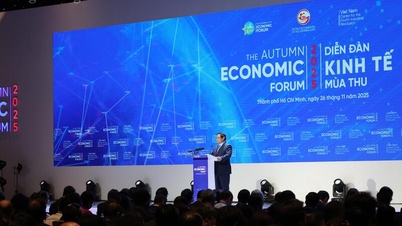

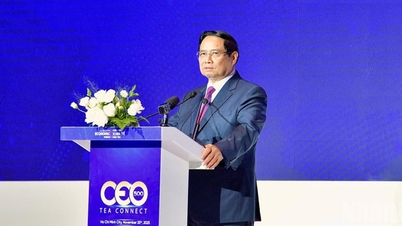

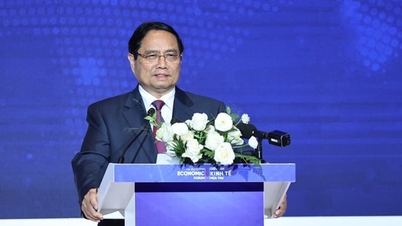

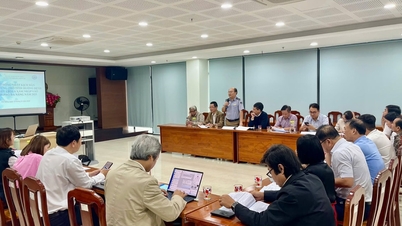

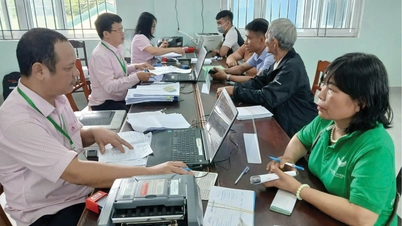

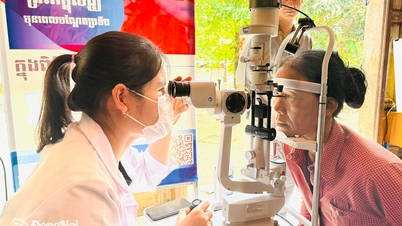

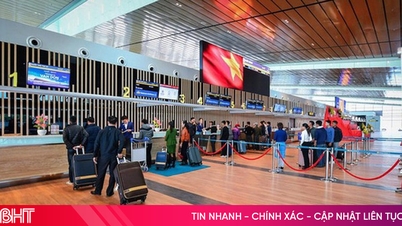

![[Infographic] 3 timelines of the "Quang Trung Campaign"](https://vphoto.vietnam.vn/thumb/402x226/vietnam/resource/IMAGE/2025/12/04/1764800248456_fb_ava-2.jpeg)




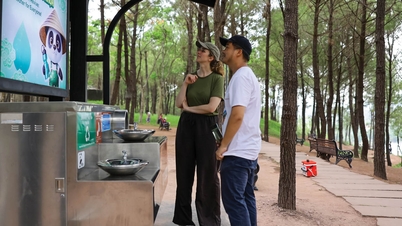

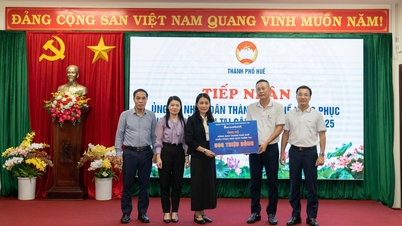
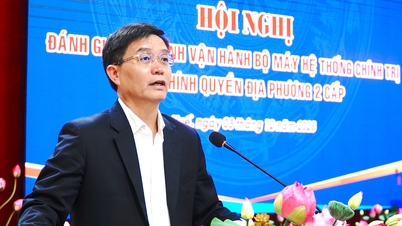

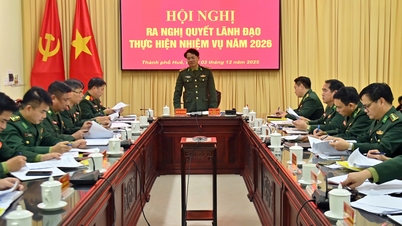
![[Photo] Parade to celebrate the 50th anniversary of Laos' National Day](/_next/image?url=https%3A%2F%2Fvphoto.vietnam.vn%2Fthumb%2F1200x675%2Fvietnam%2Fresource%2FIMAGE%2F2025%2F12%2F02%2F1764691918289_ndo_br_0-jpg.webp&w=3840&q=75)











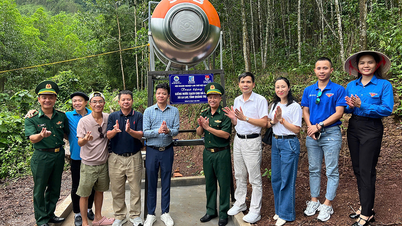















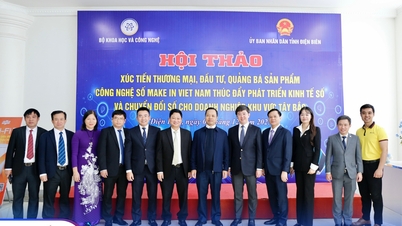












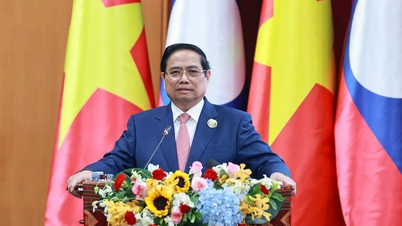

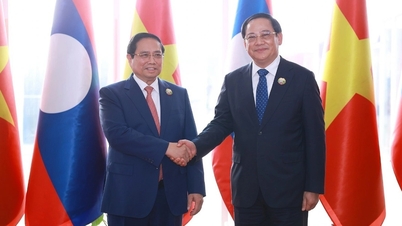












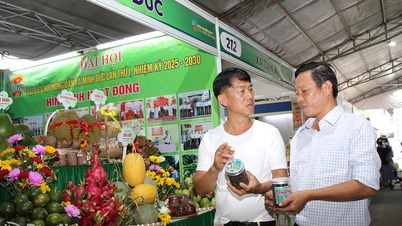
















Comment (0)